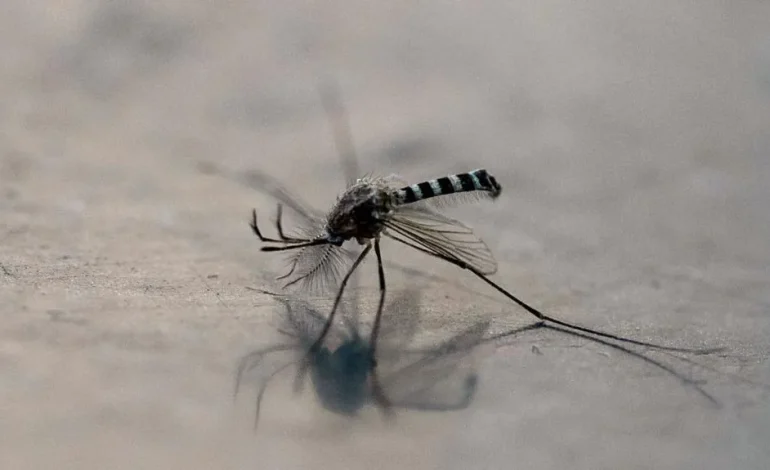A community in the Philippines has launched an unusual initiative to combat the rise in dengue cases—offering a small cash bounty for captured mosquitoes.
Authorities in Barangay Addition Hills, a densely populated area in Metro Manila, are paying one peso (less than two US cents) for every five mosquitoes collected, dead or alive, in an effort to reduce the mosquito population and slow the spread of the virus.
The initiative, led by village chief Carlito Cernal, comes amid a sharp increase in dengue infections in the Philippines. The country has recorded 28,234 cases as of February 1, marking a 40% rise from the same period last year, according to the Department of Health (DOH).
Dengue is a mosquito-borne viral infection that can cause severe flu-like symptoms, internal bleeding, and, in extreme cases, death. The disease is particularly prevalent in tropical urban areas where poor sanitation and standing water create breeding grounds for mosquitoes.
Barangay Addition Hills, home to nearly 70,000 people, has already reported 44 dengue cases this year, including the deaths of two students. The village has been implementing traditional mosquito-control measures, such as community clean-ups and water drainage efforts, but the recent spike in cases prompted Cernal to take additional action.
“This is one of the biggest and most densely populated areas,” Cernal said. “We have to do something to help the local government.”
Residents can turn in mosquitoes or their larvae at the village office in exchange for a small cash reward. Live mosquitoes are exterminated using ultraviolet light. So far, 21 people have participated, collecting a total of 700 mosquitoes and larvae.
However, the initiative has drawn mixed reactions. While some residents see it as a creative way to involve the community, others have mocked the program on social media, joking about the possibility of mosquito farming or questioning the effectiveness of the approach.
Despite the skepticism, Cernal insists the bounty is just one part of a broader strategy to control the outbreak, alongside ongoing sanitation and prevention campaigns.
The Department of Health acknowledged the good intentions behind the mosquito bounty but stopped short of endorsing it. The agency instead emphasized evidence-based strategies, such as eliminating mosquito breeding sites, wearing protective clothing, and using insect repellent.
Health experts warn that the bounty system could lead to unintended consequences, such as people breeding mosquitoes for financial gain. Cernal dismissed these concerns, saying the program would be discontinued once the dengue situation improves.
Meanwhile, officials in nearby Quezon City, which recently declared a dengue outbreak, are considering alternative mosquito-control measures—including the release of frogs to eat the insects.
The rise in dengue cases is part of a broader public health challenge in the Philippines. Seasonal rains have also contributed to increases in influenza-like illnesses and leptospirosis, a bacterial infection spread through contaminated floodwaters.
Health authorities urge the public to stay vigilant, maintain clean surroundings, and seek medical attention for suspected dengue symptoms. As the rainy season approaches, experts warn that proactive measures will be crucial in preventing further outbreaks.
BBC and the Associated Press contributed to this report.










The latest news in your social feeds
Subscribe to our social media platforms to stay tuned